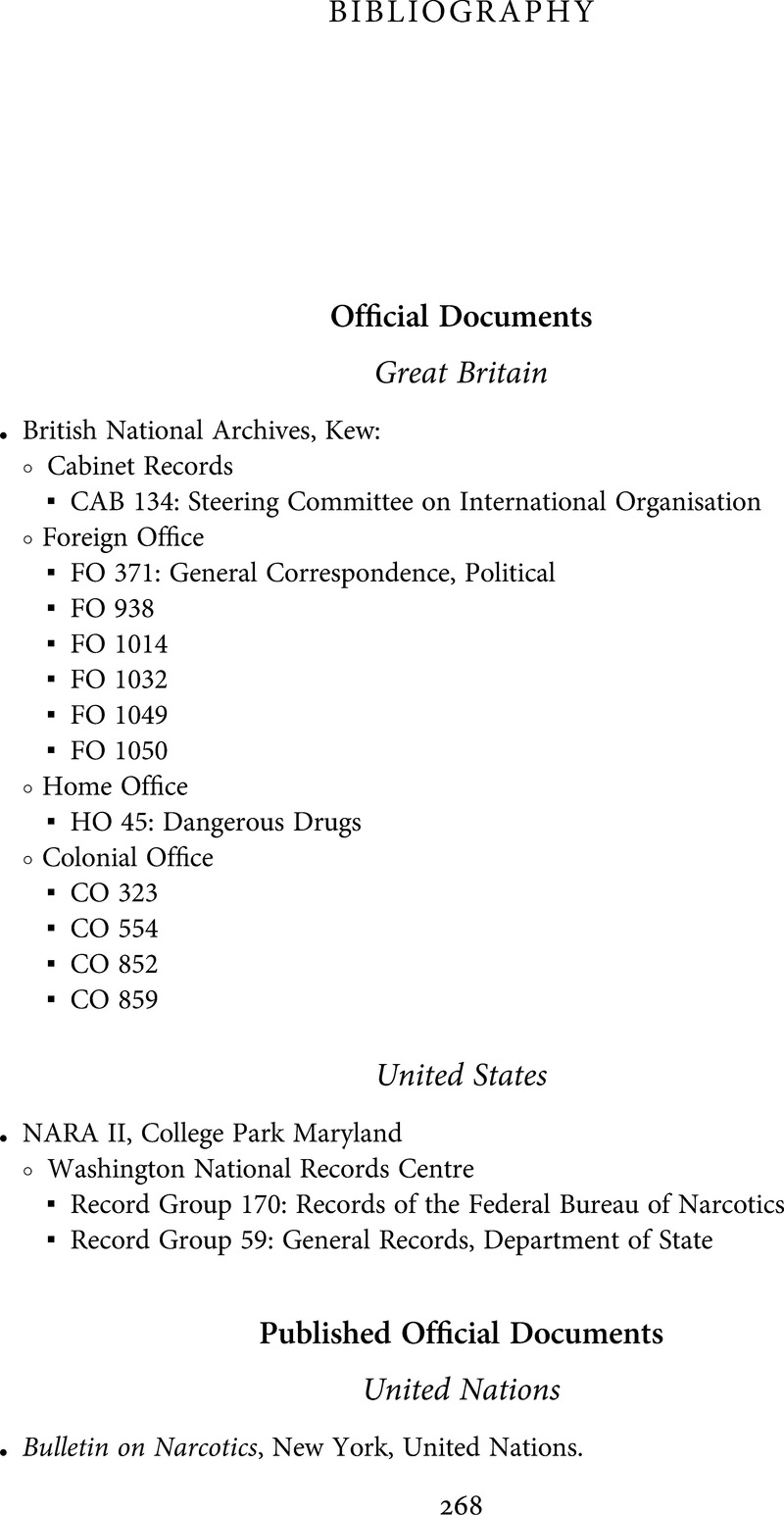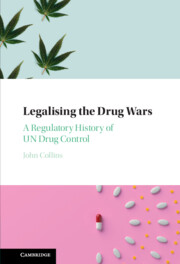Book contents
- Legalising the Drug Wars
- Legalising the Drug Wars
- Copyright page
- Dedication
- Contents
- Acknowledgements
- Abbreviations
- Historical Overview: The International Drug Control System
- Introduction
- 1 Drug Diplomacy from the Opium Wars through the League of Nations, 1839–1939
- 2 International Drug Control in Wartime, 1939–1945
- 3 Creating the UN Commission on Narcotic Drugs, 1945–1946
- 4 Reconstructing Drug Control in Europe, Asia and the Middle East
- 5 Old Battles Anew at the UN Commission on Narcotic Drugs, 1946–1948
- 6 Dividing Up the Global Licit Market, 1948–1953
- 7 From the 1953 Protocol to the 1961 Single Convention
- 8 Assessing the Legal Legacy of the Single Convention
- 9 Conclusion: UN Drug Control in the Twenty-First Century
- Notes
- Bibliography
- Index
- References
Bibliography
Published online by Cambridge University Press: 25 November 2021
- Legalising the Drug Wars
- Legalising the Drug Wars
- Copyright page
- Dedication
- Contents
- Acknowledgements
- Abbreviations
- Historical Overview: The International Drug Control System
- Introduction
- 1 Drug Diplomacy from the Opium Wars through the League of Nations, 1839–1939
- 2 International Drug Control in Wartime, 1939–1945
- 3 Creating the UN Commission on Narcotic Drugs, 1945–1946
- 4 Reconstructing Drug Control in Europe, Asia and the Middle East
- 5 Old Battles Anew at the UN Commission on Narcotic Drugs, 1946–1948
- 6 Dividing Up the Global Licit Market, 1948–1953
- 7 From the 1953 Protocol to the 1961 Single Convention
- 8 Assessing the Legal Legacy of the Single Convention
- 9 Conclusion: UN Drug Control in the Twenty-First Century
- Notes
- Bibliography
- Index
- References
Summary

- Type
- Chapter
- Information
- Legalising the Drug WarsA Regulatory History of UN Drug Control, pp. 268 - 276Publisher: Cambridge University PressPrint publication year: 2021



